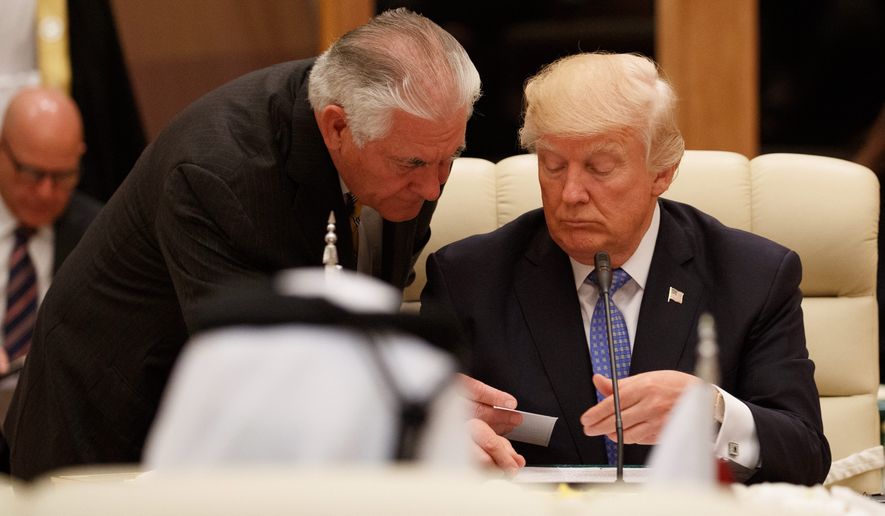The Trump administration ordered Russia to close a consulate in San Francisco and scale back operations in New York and Washington in retaliation for Moscow’s expelling U.S. diplomats and closing sites in Russia a month ago, the State Department announced Thursday.
The diplomatic clash dates back to the previous administration, when President Obama ordered a series of expulsions and closings to protest what U.S. officials said were the Kremlin’s attempts to meddle in the 2016 U.S. presidential elections. Russian President Vladimir Putin initially declined to respond in kind, but acted after bilateral ties did not improve after President Trump, who spoke as a candidate of seeking better ties with Moscow, reluctantly signed new economic sanctions that passed overwhelmingly in Congress.
The State Department said the move was made “in the spirit of parity,” but Trump administration officials also said Thursday they hoped the cycle of retaliation could stop and the two countries could start repairing the relationship.
“The United States hopes that, having moved toward the Russian Federation’s desire for parity, we can avoid further retaliatory actions by both sides,” Ms. Nauert said.
White House spokeswoman Sarah Huckabee Sanders added, “We want to halt the downward spiral and we want to move forward towards better relations,” but “we also want to have equity in the decisions.”
The diplomatic clash has become entangled in Mr. Trump’s own troubled relationship with Russia, with special counsel Robert S. Mueller III heading a broad probe into possible collusion between Russian intelligence agents and Trump campaign officials in 2016. Mr. Trump has denounced the probe while repeatedly denying he had business interests in Russia.
Moscow was ordered to close its consulate in San Francisco and trade mission offices in New York and Washington. The consulate, which has operated under the Soviet Union and now Russia since 1933 and has been at its present location since the 1970s, must be vacated by Saturday.
In late July, Moscow ordered the U.S. to bring home half of its diplomatic and technical staff, roughly 450 people, in retaliation for Congress passing new sanctions against Russia.
The State Department’s move received early support on Capitol Hill, which has pressured the White House to take a tougher line against Mr. Putin’s government.
“This is a good move by the administration and, after the last eight years, long overdue,” Sen. Tom Cotton, Arkansas Republican, said. “I applaud the president for making this decision, and I encourage the administration to build on it by doing more to crack down on Russian diplomats’ flagrant violations of travel rules and procedures.”
The Kremlin had a guarded initial reaction to the move.
“Moscow will closely study the new measures announced by the Americans, after which our reaction will be conveyed,” the Russian foreign ministry said in a statement.
The decision came just days before former Russian Defense Ministry official Anatoly Antonov arrives in Washington as Mr. Putin’s choice as the new ambassador to the U.S.
He replaces longtime envoy Sergey Kislyak, who found himself at the center of many of the charges of collusion tied to the 2016 campaign.
Mr. Antonov has a reputation as a hard-liner on U.S. relations, but he struck a more conciliatory note in an interview with the business newspaper Kommersant Thursday.
“I will try to convey to the Americans that we are not enemies, but should be partners for the benefit of Russia and the U.S.,” Mr. Antonov said.
But he added the current situation poses diplomatic challenges on both sides, saying there was a clear anti-Russian faction inside the U.S. political establishment.
“It is impossible to call a normal situation when routine contacts between the leadership and the embassy staff are [depicted] in the media as espionage activities, our diplomats are sent out of the country without official claims, and in violation of international law, diplomatic objects are expropriated,” he said.
• S.A. Miller can be reached at smiller@washingtontimes.com.
• David R. Sands can be reached at dsands@washingtontimes.com.




Please read our comment policy before commenting.